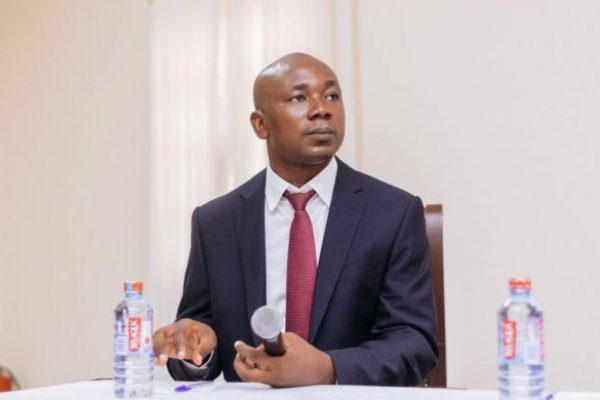Economist, Prof. Godfred Bokpin has pointed out that the country may not be able to fund priority sectors of the economy when the country exits the International Monetary Fund (IMF) programme in 2026 due a debt obligations of over ₵130 billion that will be reactivated.
Forecasting how events may pan out in the next 3 years, Prof. Bokpin warned that the situation could lead to a sharp cut in investment to the Agriculture sector, while independent power producers are denied payment if government intends to honour it debt servicing.
Speaking on the Super Morning Show on July 31, 2024, he stated that the private sector will be the hardest hit as cost of borrowing will be astronomically high.
“The conclusion is that there is no way we will be able to meet these financial obligations without altering our fiscal policy and financing decisions. We will only do so at great cost by crowding out priority spending in the area of budgetary allocation to agriculture, health, education and social protection”, he said.
Citing a report done by the African Center for Energy Policy (ACEP) to buttress his point, the Finance Lecturer said a cursory analysis shows that budgetary allocation to the Energy Ministry in 2023 has overtaken other essential priority areas crucial for economic growth.
“If you look at the energy shortfall in 2023 alone, it is far more than the budgetary allocation to the Ministry Food and Agriculture, Ministry Health, Ministry of Education and many of them”, he told host of the show, Winston Amoah.
Prof. Bokpin said the situation looks challenging than has been painted by the government.
“This is what we call crowding out of priority spending. Debt servicing, and governance cost have been imposing greater fiscal constraints on our budget. We are not allocating sufficiently to other priority areas that can ease the burden on Ghanaians”.
He stressed that Ghana is currently allocating far less to agriculture compared to the benchmark set by ECOWAS and the African Union.
“We are doing far less to achieve the Sustainable Development Goals. This is because we don’t have the fiscal space. In fact our public institutions including the universities are not recruiting at the optimal level. This is Ghana”, he lamented.
Speaking on the same programme, an Associate Professor in Finance at the University of Ghana Business School, Elikplimi Komla Agbloyor cautioned that the country could be paying more to retire its external debt if government resumes the payment of loans after 2026 due to exchange rate volatilities.
He explained that more than half of Ghana’s debt was contracted in foreign currencies, particularly the U.S dollar, which will require that more cedis be needed to pay such debt if the exchange rate continues to deteriorate.
“There is a very high risk that in 2027, we will struggle to pay. We need to maintain exchange rate stability. Currently, about 61 percent of our borrowing is in foreign currency, only 39 percent is domestic currency. Consequently if the cedi keeps depreciating, we will struggle to pay the loans”, he cautioned.
He pointed out that even though the foreign debt level may come down due to bilateral and the commercial debt restructuring exercises, the effect could be largely negated if more cedis are needed to pay the same debt in 2027 as result of poor exchange rate management.
Latest Stories
-
Baltasar Coin becomes first Ghanaian meme coin to hit DEX Screener at $100K market cap
5 minutes -
EC blames re-collation of disputed results on widespread lawlessness by party supporters
19 minutes -
Top 20 Ghanaian songs released in 2024
40 minutes -
Beating Messi’s Inter Miami to MLS Cup feels amazing – Joseph Paintsil
54 minutes -
NDC administration will reverse all ‘last-minute’ gov’t employee promotions – Asiedu Nketiah
1 hour -
Kudus sights ‘authority and kingship’ for elephant stool celebration
1 hour -
We’ll embrace cutting-edge technologies to address emerging healthcare needs – Prof. Antwi-Kusi
2 hours -
Nana Aba Anamoah, Cwesi Oteng special guests for Philip Nai and Friends’ charity event
2 hours -
Environmental protection officers receive training on how to tackle climate change
2 hours -
CLOGSAG vows to resist partisan appointments in Civil, Local Government Service
3 hours -
Peasant Farmers Association welcomes Mahama’s move to rename Agric Ministry
3 hours -
NDC grateful to chiefs, people of Bono Region -Asiedu Nketia
3 hours -
Ban on smoking in public: FDA engages food service establishments on compliance
3 hours -
Mahama’s administration to consider opening Ghana’s Mission in Budapest
3 hours -
GEPA commits to building robust systems that empower MSMEs
3 hours

